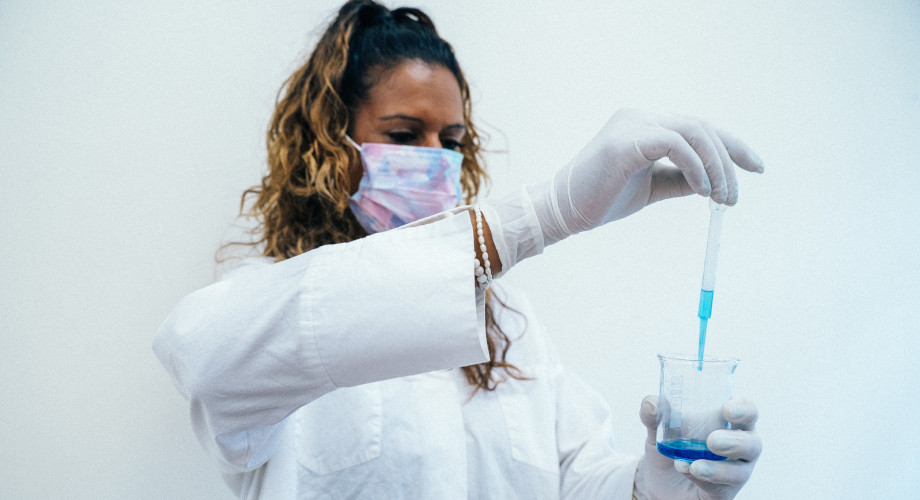Calls for changes in engaging women and girls in education, to foster more female scientists

Photo by Anna Tarazevich
More focus is needed on the way in which girls and young women engage with science in a meaningful way, in order to redress the gender imbalance in science, technology, engineering and maths (STEM) professions, according to two papers emerging from the University of Exeter.
In one, researchers found that female students learning in laboratories spend less time on scientific equipment than male students, and more time on administrative tasks, such as writing down results. The second paper, published today, found that found that over time girls who see STEM as central to who they are, develop more confidence about studying science and this increases their interest in being a scientist.
Both papers have important implications for educators to change policies and practices designed to attract more women to stay with and progress in STEM subjects, where women are consistently under-represented, particularly at higher levels.
In the first paper, published in Frontiers in Education, researchers looked at the time people of different genders spent, and perceived they spent, on different activities within the lab. They looked at 544 students across two studies. In one study, the researchers found that female students spent more time recording and taking notes during lab sessions, compared to male counterparts. Researchers used a novel method to record and analyse time spent by students using lab equipment and found female students spent significantly less time in hands-on use – albeit on some occasions that difference was fewer than two minutes.
Lead author Daniela Fernandez of the University of Exeter said: “These results are a first step and a call to promote more research looking at students’ perceptions and lab practices. Although some time differences may be seen as small, the key message is that inequalities remain and more needs to be done to understand the nuances and complexities of female participation in STEM disciplines.”
In a second study with different students, both women and men perceived timing in different roles to be similar. Female students were equally satisfied as male students with their time in the lab using equipment.
In the second paper, published today in the Journal of Youth and Adolescence, researchers studied 308 girls from the UK and US who were in STEM youth programs within informal science learning sites – such as zoos, aquariums, science centres and museums – over two years. Researchers found that over time girls who see STEM as central to who they are (known as STEM identity), develop more confidence about studying science (known as science efficacy) and this increases their interest in being a scientist.
Lead author Dr Mengya Zhao of the University of Exeter said: “Our findings highlight that in girls, feeling confident about studying science and seeing STEM as central to who they are, mutually influence each other. Enhancing these two perspectives is key to promoting adolescents’ interest in being a scientist. This study also supports the importance of STEM youth programmes within informal science learning contexts, which can serve as an important intervention to engage girls in science.
“Taken together, these two papers strengthen the argument that we urgently need learning environments to ensure female students engage in science in a meaningful way at different levels, including moving from secondary schools to university or college level education. Both are fundamental to creating a new generation of female scientists and engineers.”
The Frontiers in Education paper is entitled Gender inequality in science, technology, engineering and mathematics: gendered time disparities in perceived and actual time spent in practical laboratory-based activities’.
The Journal of Youth and Adolescence paper is entitled ‘Reciprocal Associations Between Science Efficacy, STEM Identity And Scientist Career Interest Among Adolescent Girls Within The Context Of Informal Science Learning’. It is funded by the National Science Foundation in the United States, and Wellcome and the Economic and Social Research Council in the United Kingdom.



